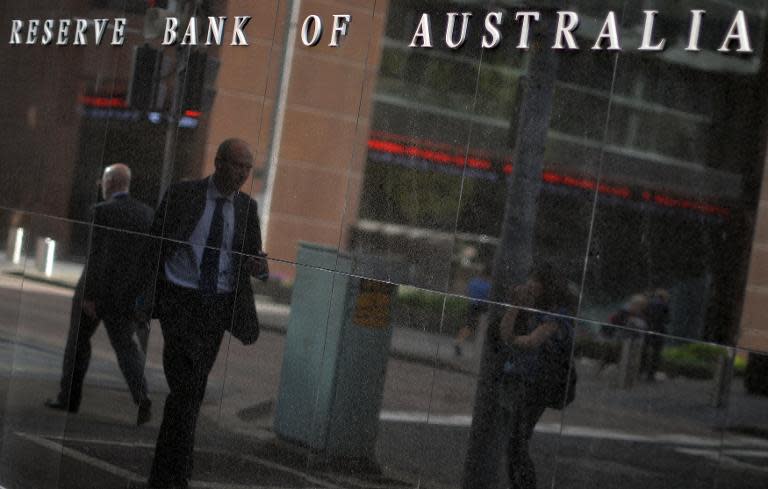Commonwealth Bank shares plunge after trading update
Shares in Australia's largest listed firm Commonwealth Bank plunged almost six percent Wednesday, their steepest daily fall since the global financial crisis, after a soft trading update and fears the central bank's rate-cutting cycle is over. The bank and other blue-chip firms have benefited from investors' search for yield, seeing their share prices strengthen over the past few years as a weakening economic climate led to interest rate cuts by the Reserve Bank of Australia. The lower benchmark rates led to declining bank deposit returns, prompting investors to seek better money in the stock market. Shares in Commonwealth Bank closed down 5.85 percent at Aus$82.98 in a return to levels last seen in November. The Reserve Bank on Tuesday slashed the interest rate by 25 basis points to a new record-low of 2.0 percent to stimulate growth, but did not include an easing bias in its statement that could have foreshadowed further cuts. "Interest rates won't be falling much more, so if interest rates start to go up, then the banks will re-price again," Bell Potter banking analyst TS Lim told AFP. "So the yield story is becoming shaky." Commonwealth Bank said Wednesday its unaudited net profit for the three months to March 31 was Aus$2.2 billion (US$1.75 billion), unchanged from the same reporting period last year. Shares in another Australian banking heavyweight, Westpac, on Monday slumped 3.08 percent after it posted a worse-than-expected first-half net profit of Aus$3.61 billion. Westpac stocks fell a further 3.66 percent Wednesday to end at Aus$33.99. Australia's two other big banks, the National Australia Bank and ANZ, saw their shares slip 2.68 percent and 2.67 percent respectively. The banks have been churning out bumper profits over the past few years. "Westpac was already quite soft and this sort of implies that the sector could be facing a lot more headwinds, and because CBA's the most expensive major bank it fell harder today," Lim added. Investors have also been spooked by comments from financial regulator the Australian Prudential Regulation Authority on implementing a recent inquiry's recommendation that major banks be required to increase the amount of capital they hold as a buffer against mortgages "sooner rather than later". Higher risk weights already apply to smaller lenders.



